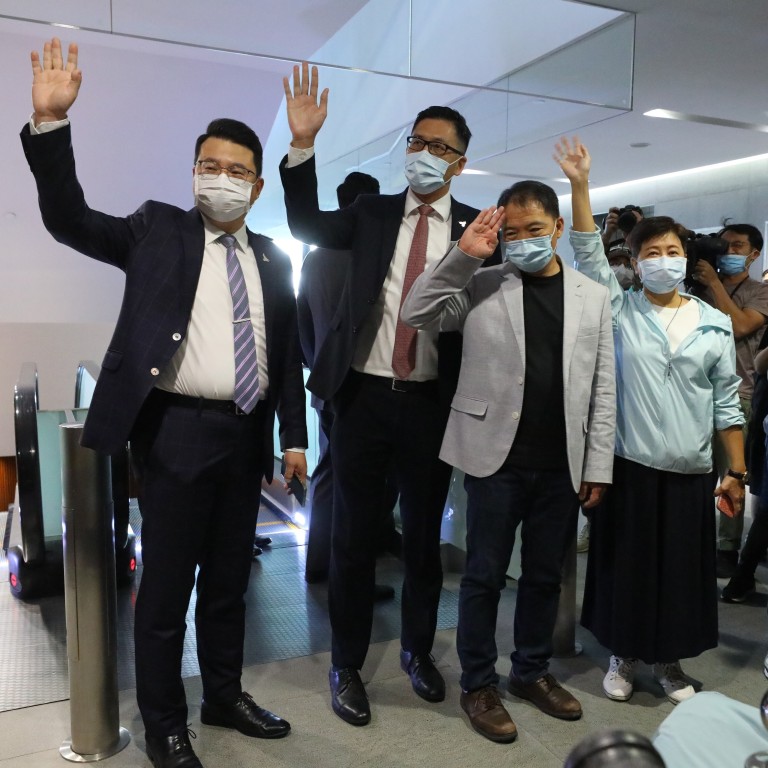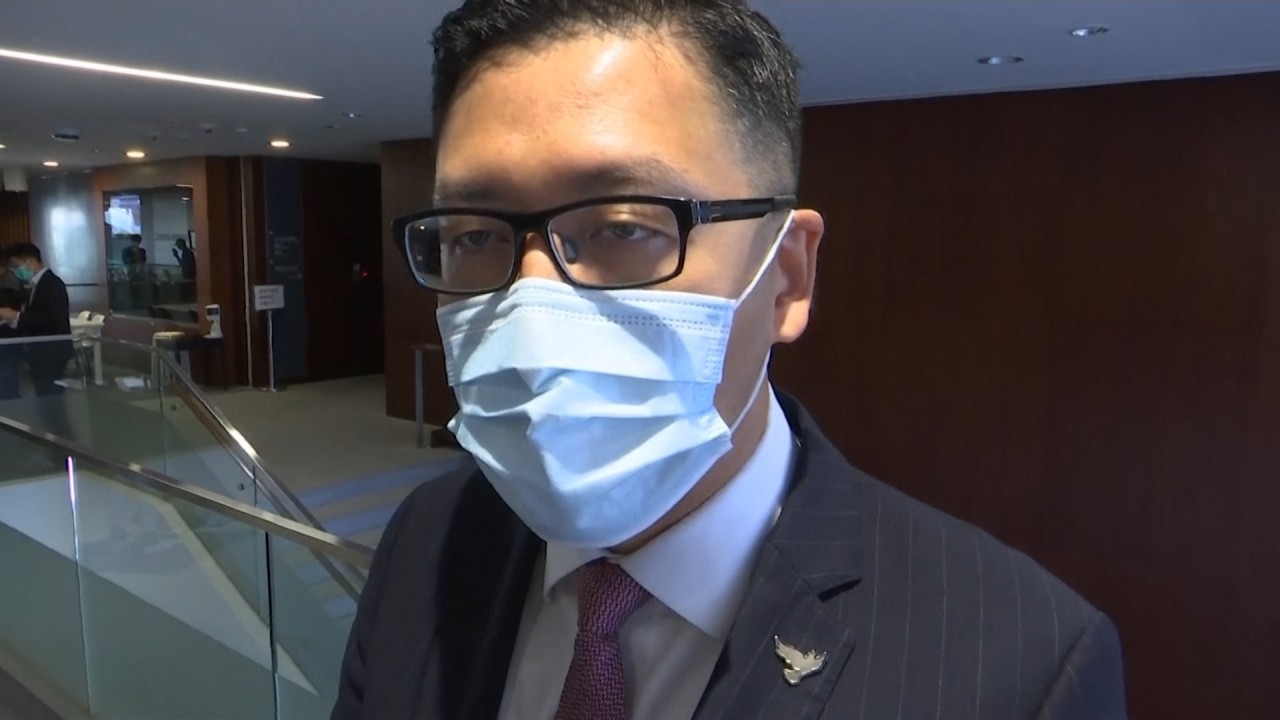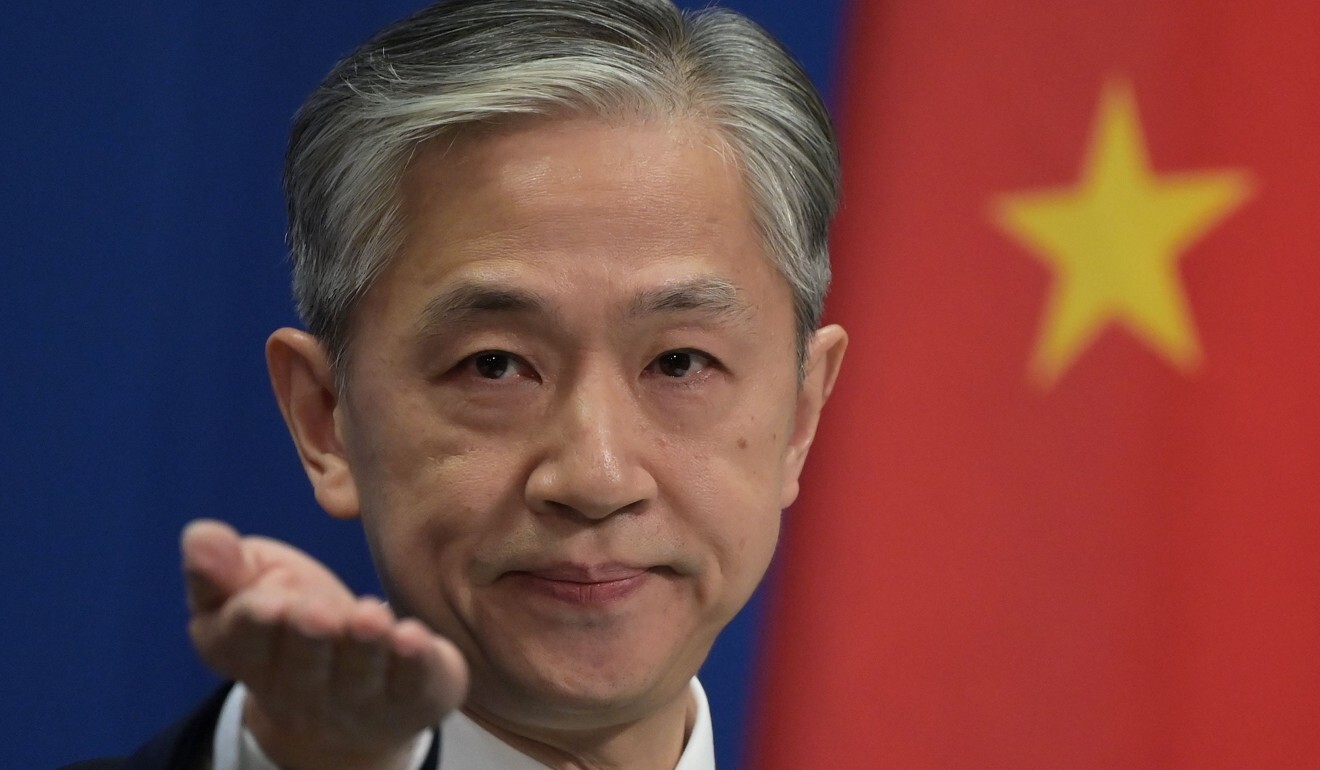
All Hong Kong opposition lawmakers quit following camp’s vow to resign en masse over Beijing resolution
- But the resignations for most legislators will take effect next month as they need time to sort out administrative matters
- State Council’s representative office calls pan-democrats’ protest tactic a farce and challenge to the central government’s authority
But most of the resignations will only take effect next month as lawmakers needed time to sort out administrative issues, such as handing over their offices and laying off assistants.
The departures were in response to the National People’s Congress Standing Committee (NPCSC) endorsing a resolution on Wednesday requiring the removal of any member of Hong Kong’s Legislative Council found to have violated their duty of allegiance or endangered national security. Four opposition legislators were immediately disqualified and their remaining colleagues said they would all quit in protest.
Democratic Party chairman Wu Chi-wai said the pan-democrats’ final working day at Legco was Thursday, but their departure would take effect on December 1.

01:36
After all opposition members resign, Hong Kong’s Legislative Council tries to resume session
“This is for us to handle the dismissal of our staff members and assistants,” Wu said. “Beijing has authorised the chief executive to make so-called decisions [on disqualification]. This has announced the death of ‘one country, two systems’.”
Wu’s colleague Lam Cheuk-ting said the Democratic Party could end up dismissing about 100 employees due to the departure of its seven lawmakers.
Member Ted Hui Chi-fung has left office immediately, while Council Front legislator Claudia Mo Man-ching will officially step down on Friday.
They were in fact resisting the central government’s comprehensive jurisdiction over Hong Kong
“Opposition lawmakers have used their public post as a tool of political manipulation,” it said. “They were in fact resisting the central government’s comprehensive jurisdiction over Hong Kong.”
Tam Yiu-chung, Hong Kong’s sole delegate to the standing committee, and 13 other local deputies to the National People’s Congress said they strongly supported the resolution.
Legco president Andrew Leung Kwan-yuen said the mass resignations were a first and he needed time to discuss the administrative arrangements with the secretariat.
A spokesman for the secretariat said 11 motions the four disqualified lawmakers planned to move would be taken off the agenda.
The resolution unanimously endorsed by 161 NPCSC members empowers the city’s electoral authorities to unseat offending politicians without having to go through the courts.
Lawmakers would be removed if they were deemed to have promoted or supported Hong Kong independence or sought foreign intervention in the city’s affairs.
They could also be disqualified if they “were recognised in accordance with the law” to have failed to meet the legal requirement of “upholding the Basic Law and pledging allegiance to Hong Kong as a special administrative region of China” – as stated in their oath of office.
US condemns unseating of pro-democracy legislators in Hong Kong
Lam insists the resolution did not grant her new powers to disqualify legislators, although relevant local laws would need to be amended.
She said she only began to think about the issue in August after the standing committee approved her request to postpone the polls. When the 19 members of the opposition decided to serve out the extended term in late September, she realised a problem existed and she would need to ask central government authorities to rule on the matter.

01:13
Hong Kong Legco ‘not a rubber stamp’, says Carrie Lam after all opposition lawmakers resign
Pro-Beijing heavyweights have suggested Lam next examine the allegiance of the city’s roughly 400 district councillors, but legal scholars are urging the government to exercise restraint and avoid infringing on residents’ civil rights.
The Real Estate Developers Association also issued a statement expressing support for Beijing’s resolution.
How will Beijing’s new resolution shape the future of Hong Kong politics?
“If you say that the standing committee’s decision was unlawful or unconstitutional, you’ll definitely lose the case,” she said.
But if lawmakers in future believed their disqualification was the result of a factual error, the court could review the matter, she said.
Delegate Tam Yiu-chung said the standing committee would have ideally resolved the status of the four pan-democrats before the extended term started last month.
“But the NPCSC has a lot of other issues on its agenda,” he said. “The central government also needs time to arrange and consider matters. That’s why the timing did not completely match [with expectations].”
Western governments have expressed criticism throughout the unfolding of events with Britain on Thursday summoning Chinese ambassador Liu Xiaoming to register its deep concern.

“China has yet again broken its promise to the people of Hong Kong,” deputy foreign minister Nigel Adams told parliament. “Its actions tarnish China’s international reputation and undermine Hong Kong’s long-term development. We will stand up for the people of Hong Kong.”
The United States National Security Adviser Robert O’Brien said the Chinese Communist Party had “flagrantly violated” its commitments to the city.
“‘One country, two systems’ is now merely a fig leaf covering for the CCP’s expanding one party dictatorship in Hong Kong,” O’Brien said.
But foreign ministry spokesman Wang Wenbin rejected the claims, saying the status of Hong Kong lawmakers was an internal affair. Other countries had no “qualification” to make allegations against China, he said.
US Secretary of State Mike Pompeo released a statement of his own saying the US “strongly condemns” Beijing’s moves to disqualify the lawmakers.
“This resolution tramples on the rights of the people of Hong Kong to choose their elected representatives,” Pompeo said on Thursday afternoon. “We will hold accountable the people responsible for these actions and policies that erode Hong Kong’s autonomy and freedoms.”
Additional reporting by Kanis Leung


